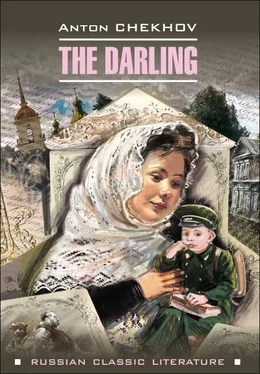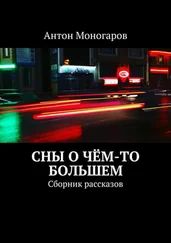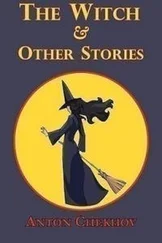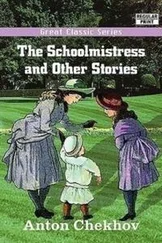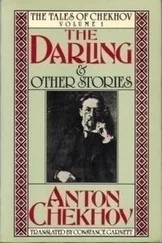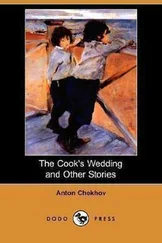Антон Чехов - The darling / Душечка. Сборник рассказов
Здесь есть возможность читать онлайн «Антон Чехов - The darling / Душечка. Сборник рассказов» — ознакомительный отрывок электронной книги совершенно бесплатно, а после прочтения отрывка купить полную версию. В некоторых случаях можно слушать аудио, скачать через торрент в формате fb2 и присутствует краткое содержание. Год выпуска: 2019, ISBN: 2019, Издательство: Литагент Каро, Жанр: Классическая проза, Русская классическая проза, Прочая научная литература, на английском языке. Описание произведения, (предисловие) а так же отзывы посетителей доступны на портале библиотеки ЛибКат.
- Название:The darling / Душечка. Сборник рассказов
- Автор:
- Издательство:Литагент Каро
- Жанр:
- Год:2019
- ISBN:978-5-9925-1149-9
- Рейтинг книги:5 / 5. Голосов: 1
-
Избранное:Добавить в избранное
- Отзывы:
-
Ваша оценка:
- 100
- 1
- 2
- 3
- 4
- 5
The darling / Душечка. Сборник рассказов: краткое содержание, описание и аннотация
Предлагаем к чтению аннотацию, описание, краткое содержание или предисловие (зависит от того, что написал сам автор книги «The darling / Душечка. Сборник рассказов»). Если вы не нашли необходимую информацию о книге — напишите в комментариях, мы постараемся отыскать её.
The darling / Душечка. Сборник рассказов — читать онлайн ознакомительный отрывок
Ниже представлен текст книги, разбитый по страницам. Система сохранения места последней прочитанной страницы, позволяет с удобством читать онлайн бесплатно книгу «The darling / Душечка. Сборник рассказов», без необходимости каждый раз заново искать на чём Вы остановились. Поставьте закладку, и сможете в любой момент перейти на страницу, на которой закончили чтение.
Интервал:
Закладка:
“If only you knew how miserable I am!” she said wringing her hands.
“What is it?” he said going up to her, wringing his hands too. “My dear, for God’s sake, tell me – what is it? Only tell the truth, I entreat you – nothing but the truth!”
“Don’t pay any attention to it,” she said, and forced herself to smile. “I promise you I’ll be a faithful, devoted wife … Come this evening.”
Sitting afterwards with his sister and reading aloud an historical novel, he recalled it all and felt wounded that his splendid, pure, rich feeling was met with such a shallow response. He was not loved, but his offer had been accepted – in all probability because he was rich: that is, what was thought most of in him was what he valued least of all in himself. It was quite possible that Yulia, who was so pure and believed in God, had not once thought of his money; but she did not love him – did not love him, and evidently she had pecuniary motives, vague, perhaps, and not fully thought out – still it was so. The doctor’s house with its common furniture was repulsive to him, and he looked upon the doctor himself as a wretched, greasy miser, a sort of operatic Gaspard from Les Cloches de Corneville 47 47 Les Cloches de Corneville – ( French ) “The Corneville Bells”, an operetta by Robert Plankett (19th century)
. The very name “Yulia” had a vulgar sound. He imagined how he and his Yulia would stand at their wedding, in reality complete strangers to one another, without a trace of feeling on her side, just as though their marriage had been made by a professional matchmaker; and the only consolation left him now, as commonplace as the marriage itself, was the reflection that he was not the first and would not be the last; that thousands of people were married like that; and that with time, when Yulia came to know him better, she would perhaps grow fond of him.
“ Romeo and Juliet !” he said as he shut the novel, and he laughed. “I am Romeo, Nina. You may congratulate me. I proposed to Yulia Byelavin to-day.”
Nina Fyodorovna thought he was joking, but when she believed it, she began to cry; she was not pleased at the news.
“Well, I congratulate you,” she said. “But why is it so sudden?”
“No, it’s not sudden. It’s been going on since March, only you don’t notice anything … I fell in love with her last March when I made her acquaintance here, in your rooms.”
“I thought you would marry some one in our Moscow set,” said Nina Fyodorovna after a pause. “Girls in our set are simpler. But what matters, Alyosha, is that you should be happy – that matters most. My Grigory Nikolaitch did not love me, and there’s no concealing it; you can see what our life is. Of course any woman may love you for your goodness and your brains, but you see Yulitchka is a girl of good family from a high-class boarding-school; goodness and brains are not enough for her. She is young and you, Alyosha, are not so young and are not good-looking.”
To soften the last words, she stroked his head and said:
“You’re not good-looking, but you’re a dear.”
She was so agitated that a faint flush came into her cheeks, and she began discussing eagerly whether it would be a proper thing for her to bless Alyosha with the ikon at the wedding. She was, she reasoned, his elder sister, and took the place of his mother; and she kept trying to convince her dejected brother that the wedding should be celebrated in proper style, with pomp and gaiety, so that no one could find fault with it.
Then he began going to the Byelavins’ as an accepted suitor, three or four times a day; and now he never had time to take Sasha’s place and read aloud the historical novel. Yulia used to receive him in her two rooms, which were at a distance from the drawing-room and her father’s study, and he liked them very much. The walls in them were dark; a case of ikons stood in the corner; and there was a smell of good scent and of the oil in the icon-lamp. Her rooms were at the furthest end of the house; her bedstead and dressing-table were shut off by a screen. The doors of the bookcase were covered on the inside with a green curtain, and there were rugs on the floor, so that her footsteps were noiseless – and from this he concluded that she was of a reserved character, and that she liked a quiet, peaceful, secluded life. In her own home she was treated as though she were not quite grown up. She had no money of her own, and sometimes when they were out for walks together, she was overcome with confusion at not having a farthing. Her father allowed her very little for dress and books, hardly ten pounds a year. And indeed the doctor himself had not much money in spite of his good practice. He played cards every night at the club and always lost. Moreover, he bought mortgaged houses through a building society and let them. The tenants were irregular in paying the rent, but he was convinced that such speculations were profitable. He had mortgaged his own house in which he and his daughter were living, and with the money so raised had bought a piece of waste ground, and had already begun to build a large two-storey house on it, meaning to mortgage it, too, as soon as it was finished.
Laptev now lived in a sort of cloud, feeling as though he were not himself, but his double, and did many things which he would never have brought himself to do before. He went three or four times to the club with the doctor, had supper with him, and offered him money for house-building. He even visited Panaurov at his other establishment. It somehow happened that Panaurov invited him to dinner, and without thinking Laptev accepted. He was received by a lady of five-and-thirty. She was tall and thin, with hair touched with grey, and black eyebrows, apparently not Russian. There were white patches of powder on her face. She gave him a honeyed smile and pressed his hand jerkily, so that the bracelets on her white hands tinkled. It seemed to Laptev that she smiled like that because she wanted to conceal from herself and from others that she was unhappy. He also saw two little girls, aged five and three, who had a distinct likeness to Sasha. For dinner they had milk-soup, cold veal, and chocolate. It was insipid and not good; but the table was splendid, with gold forks, bottles of Soyer, and cayenne pepper, an extraordinary bizarre cruet-stand, and a gold pepper-pot.
It was only when he was finishing the milk-soup that Laptev realised how very inappropriate it was for him to be dining there. The lady was embarrassed and kept smiling, showing her teeth. Panaurov expounded didactically what being in love was and what it was due to.
“We have in it an example of the action of electricity,” he said in French, addressing the lady. “Every man has in his skin microscopic glands which contain currents of electricity. If you meet with a person whose currents are parallel with your own, then you get love.”
When Laptev went home and his sister asked him where he had been he felt awkward and made no answer.
He felt himself in a false position right up to the time of the wedding. His love grew more intense every day, and Yulia seemed to him a poetic and exalted creature; but all the same, there was no mutual love, and the truth was that he was buying her and she was selling herself. Sometimes, thinking things over he fell into despair and asked himself: should he run away? He did not sleep for several nights, and kept thinking how he should meet in Moscow the lady whom he had called in his letters “a certain person,” and what attitude his father and his brother, difficult people, would take towards his marriage and towards Yulia. He was afraid that his father would say something rude to Yulia at their first meeting. And something strange had happened of late to his brother Fyodor. In his long letters he had taken to writing of the importance of health, of the effect of illness on the mental condition, of the meaning of religion, but not a word about Moscow or business. These letters irritated Laptev, and he thought his brother’s character was changing for the worse.
Читать дальшеИнтервал:
Закладка:
Похожие книги на «The darling / Душечка. Сборник рассказов»
Представляем Вашему вниманию похожие книги на «The darling / Душечка. Сборник рассказов» списком для выбора. Мы отобрали схожую по названию и смыслу литературу в надежде предоставить читателям больше вариантов отыскать новые, интересные, ещё непрочитанные произведения.
Обсуждение, отзывы о книге «The darling / Душечка. Сборник рассказов» и просто собственные мнения читателей. Оставьте ваши комментарии, напишите, что Вы думаете о произведении, его смысле или главных героях. Укажите что конкретно понравилось, а что нет, и почему Вы так считаете.
